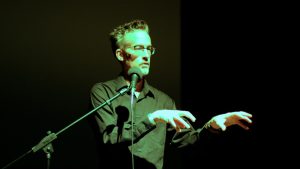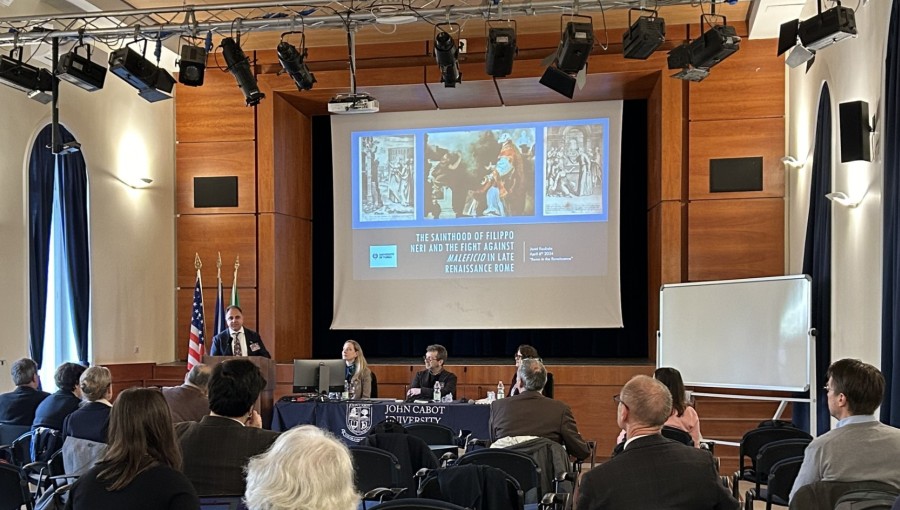JCU Presents Mark Hosler from American Band "Negativland"
On October 5, 2016 the JCU Department of Communications hosted a lecture by Mark Hosler. Hosler is one of the founding members of the band Negativland, together with David Willis e Richard Lyons.
Founded in 1979, Negativland embodies the concept of culture jamming, meaning the manipulation of mainstream media culture. Hosler explained the genesis of Negativland and its evolution. The band has always practiced the appropriation of pieces of already existing art. In early stages, the band members began experimenting with sound collage. In a time where digital manipulation did not exist, Hosler and his friends used to cut up different recording tapes and then put them back together, physically manipulating the raw materials that ended up composing their songs.
To illustrate Negativland’s collaging and remixing style, Hosler included several short films in his talk. For example, in the short film “Gimme The Mermaid,” Negativland used the copyrighted drawing of Ariel from Disney’s The Little Mermaid and juxtaposed it to the recorded voice from a male friend’s phone call.

Mark Hosler (far left), Professor Antonio Lopez (center), Professor Sarram (far right), and three students after the event
Besides its experimental and artistic works, Hosler narrated to the audience how Negativland was sued by U2 in 1991. One of the reasons was the cover of the EP U2, which featured the letter U and the number 2 in a very large font, violating trademark law.
Communications Professor Peter Sarram stated that Negativland “will resist and persist”; Hosler said that he never thought that the band and their work would live up to this day.
Hosler inspired the audience claiming that “messing around with your culture changes your relationship with it”, defining the appropriation of content as an opportunity not only to reassign meaning to the culture industry, but also for the audience to be actively involved in it.






